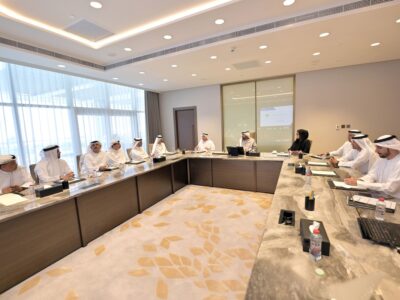Entrepreneurs take risks and have potentially bigger rewards, while employees have a perceived security and the benefits of workplace perks.
Choosing a path between the two can define a personality type and professional aspirations.
According to a survey by Bayt.com, the Middle East has a notable inclination towards entrepreneurship.
Entrepreneurs in the Middle East
The Entrepreneurship in the Middle East and North Africa 2024 survey, conducted by Bayt.com and YouGov, quizzed 1,090 people, 517 of whom are currently employed.
46 per cent said they are eager to be either self-employed or own a business, particularly high in Lebanon 46 per cent, Egypt 54 per cent, and Algeria 57 per cent.
However, a slightly larger fraction, representing 49 per cent of the total respondents, still prefer traditional employment in companies, with the private sector being the most desired workplace for 60 per cent of these individuals.
Those favouring company employment cite the allure of regular income 50 per cent, the opportunity to learn new skills 38 per cent, and employment stability along with benefits like social security and medical insurance 34 per cent as their main motivators.
Ola Haddad, General Manager at Bayt.com said: “The entrepreneurial spirit is redefining the future of work in the MENA. With nearly half of the region’s entrepreneurs embarking on their business journeys in just the last five years, and over 60 per cent poised to expand their teams, we’re witnessing an era where the pursuit of personal fulfilment, community contribution, and work-life balance is not just a dream, but a tangible goal.
“This wave of entrepreneurial optimism, against the backdrop of seeking more autonomy and meaningful impact, is a testament to a resilience that promises to reshape economies and lives across the region.”
On the entrepreneurial front, the driving forces are decidedly more personal and community-focused, with “personal fulfilment” 45 per cent, the “freedom to choose work-life balance” 43 per cent, and the “ability to give back to the community” 40 per cent emerging as top reasons.

A substantial 45 per cent of current entrepreneurs embarked on their business ventures within the past five years, showcasing a surge in entrepreneurial activities, although they face challenges like underperformance 30 per cent and the hurdles of being at the start-up stage 30 per cent.
The pursuit of higher income 31 per cent and better work-life balance 28 per cent are primary motivations behind these entrepreneurial endeavours.
Looking ahead, there’s a strong entrepreneurial ambition in the region, with 63 per cent planning to hire in the next year, implying optimism about business growth.
Moreover, significant proportions are aiming for expansion, both locally one-third and internationally 24 per cent, despite 55 per cent acknowledging the difficulty of starting a business in their country due to restrictive laws and regulations.
This sentiment is reinforced by nearly half of the respondents 48 per cent who believe that the government could better support budding entrepreneurs by simplifying these laws.
Financial obstacles (43 per cent) present the most significant barrier to starting a business, alongside concerns over procuring initial financing (57 per cent), profit uncertainty (35 per cent), and the need for establishing the right contacts 33 (per cent).
Despite these challenges, the spirit of entrepreneurship is perceived positively, with a strong majority viewing entrepreneurs as opportunity-driven (84 per cent) and crucial job creators (83 per cent).
The consensus advice for aspiring business owners is to embrace risk, with 44 per cent emphasising the importance of not fearing failure. Industries such as IT, real estate, and commerce are identified as the most appealing sectors for new business ventures.
Success in the self-employed field is believed to hinge on employing the right people (30 per cent), fostering innovation (26 per cent), and maintaining close customer relations (18 per cent).
Zafar Shah, Account Director at YouGov said: “Our latest research highlights the importance of supporting and encouraging entrepreneurship as a means of boosting job growth and economic development.
“Entrepreneurs in the MENA region foster a culture of creativity that inspires others to take risks and pursue their own ideas, leading to further innovation and growth in the economy.
“The insights gathered from this survey can help policymakers and investors create an environment that fosters innovation and entrepreneurship.”
Data for the Bayt.com in the Middle East and North Africa 2024 was collected online from April 2 to 29, 2024. Results are based on a sample of 1,090 respondents from the following countries:
- UAE
- KSA
- Kuwait
- Oman
- Bahrain
- Lebanon
- Jordan
- Iraq
- Palestine
- Syria
- Egypt
- Morocco
- Algeria
- Tunisia
- Libya
- Sudan








